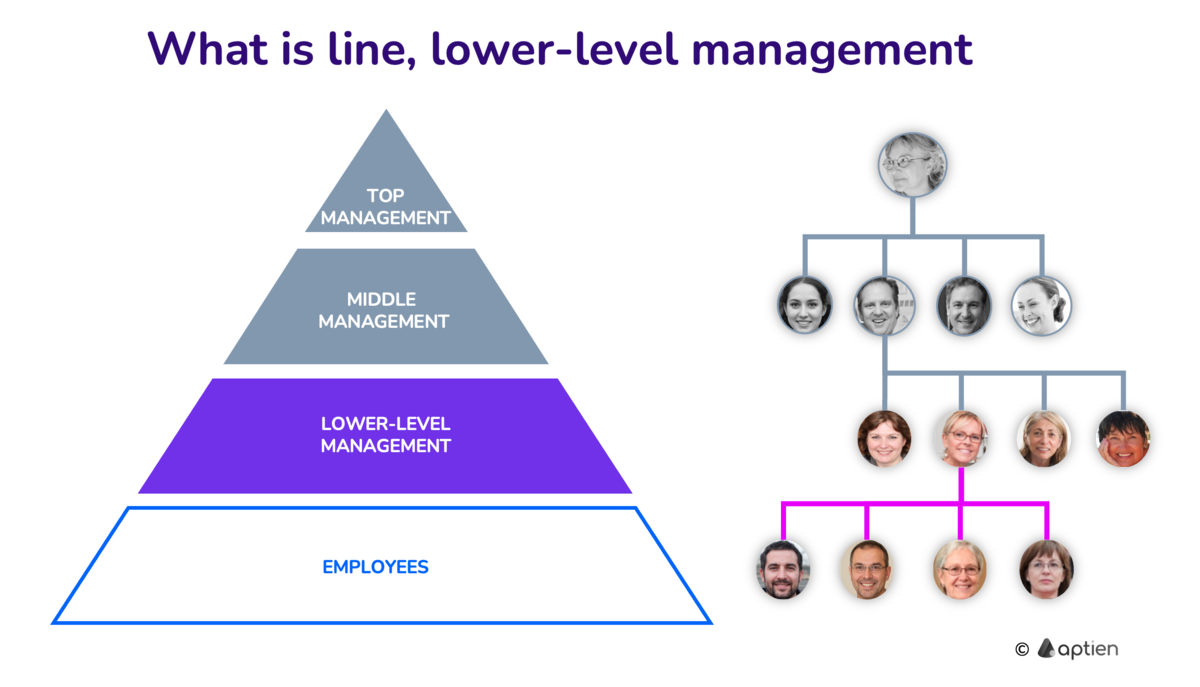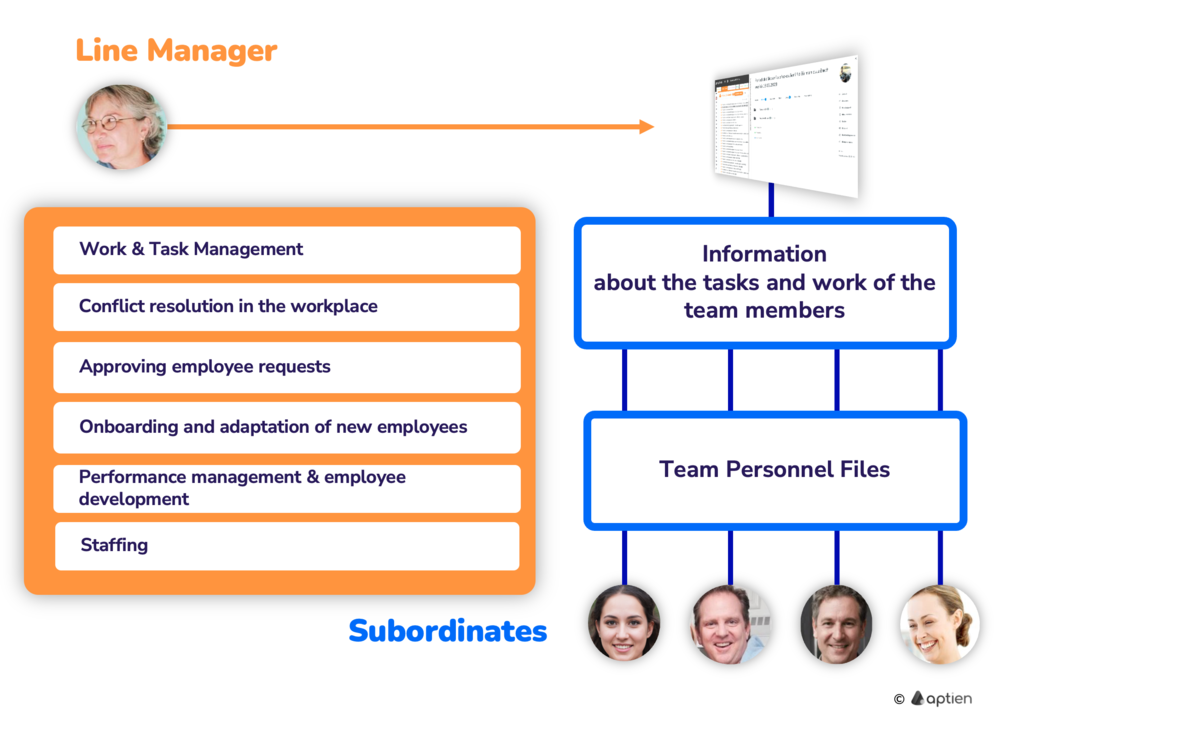A line manager (or first-line manager) is responsible for overseeing a team and managing daily operations. They typically form the foundation of management, handling day-to-day tasks and reporting to higher-level managers. Line managers play a crucial role in ensuring smooth operations and are in constant contact with their team. They may also be known as supervisors, or team leaders (depending on the company).
What Are Key Responsibilities of a Line Manager?
- Coordinate Daily Activities: Oversee daily routines and ensure smooth workflow.
- Guide Team Members: Lead the team in completing assigned tasks and organize their work.
- Monitor Work Output: Check the quality and completion of team members' work.
- Resolve Issues & Clarifications: Address any confusion or problems that arise in the workplace.
- Solve Operational Problems: Handle any challenges that occur during daily operations.
Examples of Line Managers:
- Department Head
- Workshop Foreman
- Dispatcher
- Head Nurse
A line manager is in daily contact with their team and needs information to do so effectively.
What Are Line Manager Responsibilities?
Work, Task & Resource Management
- Managing Activities, Tasks & Approvals: Oversee daily operations, assign tasks, and approve team requirements.
- Team Management: Lead and support a team of employees, ensuring smooth workflow and productivity.
- Holiday & Time-Off Approvals: Manage and approve team members’ vacation and leave requests.
Workforce Performance & Development:
- Conduct employee performance reviews.
- Maintain a consistent approach to managing team performance.
- Identify skill gaps and arrange relevant training.
- Plan staff development and growth.
Onboarding & New Employee Adaptation:
- Guide new team members through the onboarding and adaptation process.
- Participate in hiring, interviewing, and inducting new team members.
Conflict Resolution:
- Resolve issues between employees or between employees and managers.
- Facilitate positive working relationships among team members.
- Mediate differences and foster cooperation.
- Document employment decisions and actions according to company policy.
Staffing:
- Determine necessary skills and qualifications for department roles.
- Review job descriptions for accuracy and completeness when filling vacancies.
- Collaborate with HR in recruitment to identify qualified candidates.
- Assess current team capabilities and gaps.
Workforce Strategy:
- Work with HR to forecast future staffing needs.
- Decide whether to train current employees for promotions or hire new talent with advanced skills.
- Plan for succession and ensure adequate staffing levels.
Other Line Management Responsibilities:
- Ensure the team meets its targets.
- Mentor and coach team members to improve performance.
- Report on team and individual performance to senior leadership.
- Manage budgets for training and work equipment.
- Lead team meetings and communicate key business updates.
How You Can Manage Your Team as a Line Manager in Aptien
As a line manager, you have direct subordinates set up in the organizational structure. With them, you can:
- Approve Requests: Handle and approve requests from your team members.
- Task Overview: (Feature under construction) Get an overview of your team’s tasks.
- Access Personal Files: View personal files, including personal information, onboarding, adaptation, training, and other development plans.
- Manage Resources: Track issued work equipment, tools, completed training, and other relevant information.
- Organizational Unit Overview: Maintain an overview of all individuals within your organizational unit.

